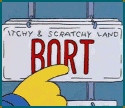|
zoux posted:I call that, to coin a term, syncretism. Whoa, you better get on writing a paper on this. Seems like some really ground breaking stuff.
|
|
|
|

|
| # ? May 9, 2024 23:47 |
|
I dunno sounds farfetched.
|
|
|
|
What are some good, non-fascist history YouTube channels to throw on in the background?
|
|
|
|
There are tons, but specifically for ancient history I like Epithemeus https://www.youtube.com/watch?v=-gBj4qAowCE
|
|
|
|
Despite the name the Histocrat is pretty good covers a lot of Roman history but also dips back into Bronze age and pre-historic man. https://www.youtube.com/watch?v=8JBW-_zq4xM His stuff is mostly pre-historic man rather than history proper but Stefan Milo is also good. https://www.youtube.com/watch?v=FVgNulhQ9Fg
|
|
|
|
Tomn posted:One bit that stuck out for me in that passage: "Admirest thou a fight for liberty? Thou wilt admire Brutus." What exactly does "liberty" mean in the context of a late Roman emperor? I'm assuming it's not exactly a Mel Gibson cry for FREEEEEEDOM and the overthrow of autocrats. I missed this but yeah, it is kind of striking, isn’t it. There was a tradition going back to Tacitus (and indeed to the events themselves) which saw Brutus as an exemplary Roman aristocrat for doing the moral thing and standing up to big bad Caesar in the name of liberty (to be a rich dickhead). And that’s probably the only sense in which he means it here, but it’s funny to imagine Claudian saying that in the court of the teenage Honorius. You could easily construe it as a gently caress-you to Stilicho if you were so inclined—“take Brutus as your model, young man, and go bump off the older guy who holds tyrannical power”—though he then moves on to gushing about Stilicho saving everyone, so I doubt that was the intent.
|
|
|
|
zoux posted:There are tons, but specifically for ancient history I like Epithemeus Anyone know of a good summary of the invention, importance, and uses of pottery? I've always heard about how it was a game changer but never hear many details about why. I dont doubt it, but I'm curious to learn more about the finer details.
|
|
|
|
I really do believe that the documentary/edutainment sector of youtube is doing stuff that is orders of magnitude better than the History Channel or Discovery ever did, but the problem is the algorithm and the fact that so many nazis are into history. With that said, as far as I know - and I try very hard to determine this every time I find a new channel - none of these guys are facists HIstoria Civilis is fairly amateur but also very good at explaining basic roman history and culture. In the beginning he was 100% Rome but he's broadened his scope in recent years. Invicta is more pro but his videos tend more towards pop history and he also does a lot of let's plays and not specifically history-focused content. Kings and Generals is probably the gold standard of history doc channels, but they are really military focused. In a half hour, you're going to get ~10ish minutes on historical context and 20 min of squares moving around battlefields. It also covers allllll the eras of history, ranging from Egypt vs. Canaanites at Medigo all the way up to Ukraine. Oh and if you want prehistorical prehistory Stefan Milo covers early hominids through agriculture.
|
|
|
|
Yea I've enjoyed Historia Civilis quite a bit, he did a good job of coving the portions of the Caesarian and Post-Caesarian civil wars that the common narrative just skips right over.
|
|
|
|
AAAAA! Real Muenster posted:Thank you for the link to this, it was a great little breakdown. This question is so big that I had an out of body experience trying to think about it. I can't think of any particular summary because its just...so massive. There are two questions that I like that highlight the importance of pottery and the difference between life in the prepottery neolithic and the rest of history. The first is: what are you storing things in and how are you transporting them without pottery? There are viable answers here: woven baskets being a good answer, animal skin bags being another. But those have very limited durability, which limits both the duration of storage and by extension the distances you can transport things. And importantly those things don't meaningfully extend the shelf life of anything you store in them, which is the vast majority of things you'd want to store anyway. You have some answers like "holes" for longer term but for I hope obvious reasons you can't carry a hole full of nuts to the next town over. Pottery opens up a lot of options here, in terms of storing things, moving things, pickling things. The one that was a little more mind breaking to me is: how do you cook? Like what cooking techniques do you have pre-pottery? Remember that pre-pottery also means pre-metal. There is a technique for making soup without pottery that is very clever and also loving sucks from a convenience standpoint that I'll leave as an exercise to the imagination, but cooking prepottery is a real pain in the rear end. You can roast on a skewer over open flame, and you can wrap things in leaves and put them in coals or an oven, Its a really limited set of options, and these techniques are generally not super efficient and are definitely a lot harder to control. The invention of pottery is not going to have any clean summary. Pottery was likely invented in many places independently but not simultaneously, so the question of the invention of pottery in Japan vs Iraq vs Germany vs Mexico is going to get you different answers. And of course this is thoroughly prehistoric* so we don't exactly have any written sources where we have an inventor going "yo dude check out this crazy poo poo I just figured out." What we do see is that red clay mixed with some sand and coiled can be fired in a bonfire and AFAIK that's the most common start point. Entirely likely that people independently noticed that if you get clay hot enough you can create a hard shaped object, which opens up all kinds of poo poo because without this your options for creating hard objects are basically wood stone and bone, which have limited shaping options. But any more detail than that is going to get incredibly chaotic and its also not settled, since we have ceramic works that well predate the neolithic and a whole half of the history of agriculture is generally considered "prepottery neolithic" and of course Japan just flat out started into paleothic pottery and it's all very confusing/exciting. Anyway this was my attempt to organize my thoughts/knowledge on this question, I hope it was at least a little edifying and hopefully there's another goon who's smarter than me about the neolithic b/c I don't know nearly as much as I'd like. *Remember that well-established clay industries were a precondition of the first place to develop writing since they were writing on clay
|
|
|
|
skasion posted:I missed this but yeah, it is kind of striking, isn’t it. There was a tradition going back to Tacitus (and indeed to the events themselves) which saw Brutus as an exemplary Roman aristocrat for doing the moral thing and standing up to big bad Caesar in the name of liberty (to be a rich dickhead). And that’s probably the only sense in which he means it here, but it’s funny to imagine Claudian saying that in the court of the teenage Honorius. You could easily construe it as a gently caress-you to Stilicho if you were so inclined—“take Brutus as your model, young man, and go bump off the older guy who holds tyrannical power”—though he then moves on to gushing about Stilicho saving everyone, so I doubt that was the intent. That’s what Honorius did in the end, although obviously Claudian’s poetry wasn’t the cause.
|
|
|
|
Tulip posted:There is a technique for making soup without pottery that is very clever and also loving sucks from a convenience standpoint that I'll leave as an exercise to the imagination Was this the "dig a pit, fill with water, then toss in some rocks heated by the fire to boil it" trick? I guess I always thought of that as poaching, but I'd imagine it would make a good broth too.
|
|
|
|
You ever make a homemade bowl of cereal by pouring cereal in your mouth and then milk? well, that's the theory
|
|
|
|
Lead out in cuffs posted:Was this the "dig a pit, fill with water, then toss in some rocks heated by the fire to boil it" trick? I guess I always thought of that as poaching, but I'd imagine it would make a good broth too. There's a couple of methods (not to mention there's carvable/easily shapable stones) but there's lining a pit with something waterproof and doing that or the whole suspension boil where you have water in a waterproof container a certain height over a fire. The water prevents the material from burning and will boil. You can also do the whole rock in a container thing with wooden containers or a log. You might be able to do it with a gourd too? However it's important to note that ceramics preserve well and these other methods rely on materials that very much do not. Telsa Cola fucked around with this message at 21:08 on Dec 7, 2022 |
|
|
|
Tulip posted:This question is so big that I had an out of body experience trying to think about it. I can't think of any particular summary because its just...so massive.
|
|
|
|
Tulip posted:This question is so big that I had an out of body experience trying to think about it. I can't think of any particular summary because its just...so massive. It's actually possible to boil water in perishable containers. So a soup container only needs to be waterproof, it does not need to be metal or ceramic. A waterproof animal skin could work if you don't mind doing it just once. https://paleoanthro.org/media/journal/content/PA20150054.pdf https://www.youtube.com/watch?v=fpjLcLa7rkU https://www.youtube.com/watch?v=I9gKzea3Cno
|
|
|
|
Lead out in cuffs posted:Was this the "dig a pit, fill with water, then toss in some rocks heated by the fire to boil it" trick? I guess I always thought of that as poaching, but I'd imagine it would make a good broth too. I actually forgot about that one lol Telsa Cola posted:There's a couple of methods (not to mention there's carvable/easily shapable stones) but there's lining a pit with something waterproof and doing that or the whole suspension boil where you have water in a waterproof container a certain height over a fire. The water prevents the material from burning and will boil. You can also do the whole rock in a container thing with wooden containers or a log. You might be able to do it with a gourd too? This lining a pit one was the one i was thinking of, which is a huge pain in the rear end but is quite clever. golden bubble posted:It's actually possible to boil water in perishable containers. So a soup container only needs to be waterproof, it does not need to be metal or ceramic. A waterproof animal skin could work if you don't mind doing it just once. Oh neat that's quite cool. Makes me feel old that I was already one foot out the door on being an academic when that was published. AAAAA! Real Muenster posted:Wow, thank you for the writeup! I figured it would be in-depth but apparently I vastly underestimated the topic. IIRC you're more of a milhist guy and I've been trying to think of a proper innovation in military history, but "spears" feels like an overstatement I don't think pottery changed humans as much as spears, but "bows/slings" feels like an understatement. I'm not sure there's any post-stone military technologies that are quite as massive a change as pottery, and the ones that are hitting the shortlist for me (telecomms? rail? bureaucracy?) at least happened during written history and that really changes the element of how much speculation/squishiness there is to it.
|
|
|
|
Tulip posted:IIRC you're more of a milhist guy and I've been trying to think of a proper innovation in military history, but "spears" feels like an overstatement I don't think pottery changed humans as much as spears, but "bows/slings" feels like an understatement. I'm not sure there's any post-stone military technologies that are quite as massive a change as pottery, and the ones that are hitting the shortlist for me (telecomms? rail? bureaucracy?) at least happened during written history and that really changes the element of how much speculation/squishiness there is to it.
|
|
|
|
skasion posted:I missed this but yeah, it is kind of striking, isn’t it. There was a tradition going back to Tacitus (and indeed to the events themselves) which saw Brutus as an exemplary Roman aristocrat for doing the moral thing and standing up to big bad Caesar in the name of liberty (to be a rich dickhead). And that’s probably the only sense in which he means it here, but it’s funny to imagine Claudian saying that in the court of the teenage Honorius. You could easily construe it as a gently caress-you to Stilicho if you were so inclined—“take Brutus as your model, young man, and go bump off the older guy who holds tyrannical power”—though he then moves on to gushing about Stilicho saving everyone, so I doubt that was the intent. Again, though, what exactly is meant by the word "liberty" here? The idea that oligarchs should be free to do as they please without central state restraint? Opposition to arbitrary tyranny (as opposed to the entirely just and even-handed tyranny of our current emperor, long may he reign)? It's clear to me as a layman that "liberty" to Claudian and Honorius doesn't mean the same thing as "liberty" does to the average American on the street today, but what DID it mean as a concept to the late Romans?
|
|
|
|
Tomn posted:Again, though, what exactly is meant by the word "liberty" here? The idea that oligarchs should be free to do as they please without central state restraint? Opposition to arbitrary tyranny (as opposed to the entirely just and even-handed tyranny of our current emperor, long may he reign)? It's clear to me as a layman that "liberty" to Claudian and Honorius doesn't mean the same thing as "liberty" does to the average American on the street today, but what DID it mean as a concept to the late Romans? Dave & Dave make the argument that the 21st century American's notion of liberty has more to do with Wyandot philosophy than European, and that the Roman concept of "liberty" was not just freedom to do as one pleased but freedom to do to others without them being able to retaliate. Very much a slaveholder's perspective of liberty, which is intrinsically dependent on massively impugning the the liberty of (often many) others. Dawn of Everything posted:The Roman Law conception of natural freedom is essentially based on the power of the individual (by implication, a male head of household) to dispose of his property as he sees fit. In Roman Law property isn’t even exactly a right, since rights are negotiated with others and involve mutual obligations; it’s simply power – the blunt reality that someone in possession of a thing can do anything he wants with it, except that which is limited ‘by force or law’. This formulation has some peculiarities that jurists have struggled with ever since, as it implies freedom is essentially a state of primordial exception to the legal order. It also implies that property is not a set of understandings between people over who gets to use or look after things, but rather a relation between a person and an object characterized by absolute power. What does it mean to say one has the natural right to do anything one wants with a hand grenade, say, except those things one isn’t allowed to do? Who would come up with such an odd formulation? AAAAA! Real Muenster posted:Hrmm, I'm wondering if you're thinking of how I've briefly mentioned in this thread that I am working on a boardgame about ancient history? I'm not super into milhist but I know how military developments often fuel other developments and so on. The game I'm making is more about gamifying early developments like pottery, copperworking, irrigation, ect into a weighing the opportunity cost about which one your faction develops first because of the history-based effect I turn into a game mechanic/modifier/whatever that will help you win. I mainly find learning about how things were first invented/discovered absolutely fascinating because today's society takes so much for granted (pottery being a great example of "what was life like before humanity had vessels to hold water and other liquids, or even simply as containers for solid objects"). I am probably mixing you up with somebody in the milhist thread, my bad if so.
|
|
|
|
Tomn posted:Again, though, what exactly is meant by the word "liberty" here? The idea that oligarchs should be free to do as they please without central state restraint? Opposition to arbitrary tyranny (as opposed to the entirely just and even-handed tyranny of our current emperor, long may he reign)? It's clear to me as a layman that "liberty" to Claudian and Honorius doesn't mean the same thing as "liberty" does to the average American on the street today, but what DID it mean as a concept to the late Romans? I don't think it meant anything very definite to Claudian, frankly; it strikes me as boilerplate sloganeering.
|
|
|
|
Tomn posted:Again, though, what exactly is meant by the word "liberty" here? The idea that oligarchs should be free to do as they please without central state restraint? Opposition to arbitrary tyranny (as opposed to the entirely just and even-handed tyranny of our current emperor, long may he reign)? It's clear to me as a layman that "liberty" to Claudian and Honorius doesn't mean the same thing as "liberty" does to the average American on the street today, but what DID it mean as a concept to the late Romans? libertas had an original, fairly technical sense of freedom in the legal sense. Roman citizens had libertas because they were not slaves. One’s children are called “liberi” in Latin because they are your free, as opposed to unfree, dependents (servi). However, in the late republic libertas took on metaphoric and political overtones and became a kind of slogan or byword which denoted something a bit more difficult to grasp. The American usage of “freedom” is not a bad translation of this—if nothing else it conveys that libertas is an extremely important and loaded idea. Those who sought to monopolize control of the late Republican government and those who fought them both did so in the name of libertas—but of course none of them would have thought that liberty extended to generally emancipating slaves or women. Writing under the empire, Tacitus describes the original Brutus, who threw out King Tarquin, as having introduced “libertatem et consulatum”—freedom and the consulship. According to Livy, Brutus was aided in the coup by his slave Vindex, who was subsequently emancipated and became his freedman (libertus). Obviously Tacitus had an axe to grind, and the message here is succinctly that public life in a city dominated by a monarch does not constitute libertas. The monarchs themselves took just the opposite opinion though. Augustus famously declared that his original muster of a private army and subsequent entry into politics had “restored liberty to the republic when it had been oppressed by the tyranny of a faction.” Clearly Roman monarchs were all about this libertas, whatever it was, and this continued to be the party line all the way past the breakdown of Augustus’ carefully non-monarchic image, right through the end of the principate and into late antiquity: Justinian’s Institutes offers us a handy definition. Institutes 1.III.1 posted:Freedom, from which men are called free, is a man's natural power of doing what he pleases, so far as he is not prevented by force or law. Force and law do a lot of heavy lifting here. But in general Claudian, as ridiculous as it may seem, is invested in contrasting Honorius with tyrants. quote:”If thou make any law or establish any custom for the general good, be the first to submit thyself thereto; then does a people show more regard for justice nor refuse submission when it has seen their author obedient to his own laws. The world shapes itself after its ruler's pattern, nor can edicts sway men's minds so much as their monarch's life; the unstable crowd ever changes along with the prince. We’re not servile orientals, Claudian has the god-emperor’s ghost admonish his teenage heir; our people are the descendants of a stern manly bunch who won’t take it kindly if you sit around the palace all day being ritually praised and thinking yourself above the law.
|
|
|
|
Tulip posted:I am probably mixing you up with somebody in the milhist thread, my bad if so.
|
|
|
|
I had literally never thought about pottery in that way before. That's a really good post.
|
|
|
|
Tulip posted:This question is so big that I had an out of body experience trying to think about it. I can't think of any particular summary because its just...so massive. How about goards?
|
|
|
|
Tunicate posted:How about goards? They're very cool but have some limitations compared to pottery (don't grow everywhere, compete with other food products, less heat tolerance, reliant on agricultural cycles; to be fair they do other stuff better, way better for carrying water and making instruments) and a quick check suggests that they only start showing up in archaeological sites around 13,000 BCE, which is actually later than some of the earliest pottery (17,000BCE I think). A thing I didn't emphasize but is worth pointing out is that the production of pottery is a huge advantage. While you can make shaped vessels by carving stone and wood, that's honestly a lot more labor intensive, and mass producing e.g. animal skin bags only works if you are able to mass slaughter animals, which produces a ton of economic issues. Its something I found really surprising when I first learned it because I've grown up in a culture where pottery is a highly skilled artisanal and artistic practice rather than a major element of mass consumption, but for a lot of history pottery was how you made disposable vessels. An experienced potter aiming for quantity over quality can make a lot of pottery with relatively little trouble since its just fuel, labor, and dirt, especially once pottery wheels come into play. skasion posted:libertas had an original, fairly technical sense of freedom in the legal sense. Roman citizens had libertas because they were not slaves. One’s children are called “liberi” in Latin because they are your free, as opposed to unfree, dependents (servi). However, in the late republic libertas took on metaphoric and political overtones and became a kind of slogan or byword which denoted something a bit more difficult to grasp. The American usage of “freedom” is not a bad translation of this—if nothing else it conveys that libertas is an extremely important and loaded idea. Those who sought to monopolize control of the late Republican government and those who fought them both did so in the name of libertas—but of course none of them would have thought that liberty extended to generally emancipating slaves or women. Good stuff thank you.
|
|
|
|
skasion posted:I missed this but yeah, it is kind of striking, isn’t it. There was a tradition going back to Tacitus (and indeed to the events themselves) which saw Brutus as an exemplary Roman aristocrat for doing the moral thing and standing up to big bad Caesar in the name of liberty (to be a rich dickhead). And that’s probably the only sense in which he means it here, but it’s funny to imagine Claudian saying that in the court of the teenage Honorius. You could easily construe it as a gently caress-you to Stilicho if you were so inclined—“take Brutus as your model, young man, and go bump off the older guy who holds tyrannical power”—though he then moves on to gushing about Stilicho saving everyone, so I doubt that was the intent. Given that this passage is placed among all the late kingdom and early republican heroes instead of further along with Caesar and the like, I wonder if this isn’t the earlier Brutus of founding the republic by driving out the tyrant Tarquinius fame who’s being mentioned.
|
|
|
|
galagazombie posted:Given that this passage is placed among all the late kingdom and early republican heroes instead of further along with Caesar and the like, I wonder if this isn’t the earlier Brutus of founding the republic by driving out the tyrant Tarquinius fame who’s being mentioned. Yeah probably true.
|
|
|
|
This current talk reminded me of an intriguing paper I read a couple years ago now.quote:Canonical texts in international relations define peace as the absence of violence (Aron 1973, 21; Bull 2012, 18; Clausewitz 1976, 75; Waltz 1959, 1; 1979, 343). However, a glance at the philology of the word “peace” reveals a more complex relationship with violence. The Latin words for peace (pax, pacis, paco) trace their roots to the verb for a pact (pacisci), “which ended a war and led to submission, friendship, or alliance.” As Rome transitioned from republic to empire, pax changed its meaning from a pact among equals to submission to Rome, and “pacare began to refer to conquest” (Weinstock 1960, 45).1 Not really a words guy but I do love intellectual history and philosophy and they're crucial here. Understanding that Greeks had four words for love is pretty pivotal because when reading a translation; the Greek Philosopher you're reading could be talking about wildly different things when you see the single word love. NikkolasKing fucked around with this message at 05:15 on Dec 8, 2022 |
|
|
|
Thanks! There's some weird contradictions in there for sure, but to some degree I guess in its way it's no weirder than some of the things certain Americans would insist on in the name of liberty. The idea that a monarch could be a defender of liberty is a hard one to twist my head around but I guess if the idea is that the monarch is supposed to be the impartial judge making sure that everyone plays ball fairly I could sorta see it as long as nobody asks any questions about what happens if the monarch himself isn't playing fair.
|
|
|
|
In the ancient Mediterranean it was pretty common for monarchs and tyrants (in the classical sense) to portray themselves as representatives of the citizenry in opposition to oligarchic institutions like the Roman Senate or various poleis' boule. This was also a line of attack against would-be-monarchs, that they would enact the will of the everyday citizenry and purge the aristocracy. Even in the middle ages, monarchs frequently portrayed themselves as representatives of "the people" in opposition to the aristocracy. It's a pretty common theme throughout European history.
|
|
|
|
FishFood posted:In the ancient Mediterranean it was pretty common for monarchs and tyrants (in the classical sense) to portray themselves as representatives of the citizenry in opposition to oligarchic institutions like the Roman Senate or various poleis' boule. This was also a line of attack against would-be-monarchs, that they would enact the will of the everyday citizenry and purge the aristocracy. Even in the middle ages, monarchs frequently portrayed themselves as representatives of "the people" in opposition to the aristocracy. It's a pretty common theme throughout European history. Now for
|
|
|
Strategic Tea posted:Now for
|
|
|
|
|
There is also a very big difference between portraying oneself as being a representative of the people and, uh, actually being one.
|
|
|
|
Oh yeah I don't mean to snipe - I think the idea of the people's monarch vs the aristo/bureau/other crats is still surprisingly close is all!
|
|
|
|
pot chat https://twitter.com/OptimoPrincipi/status/1601249503952052228?s=20&t=h3a0zGKKZWzywUptUZ956Q
|
|
|
|
|

|
|
|
|
Pretty sure we can safely assume they’re both deceased now
|
|
|
|
Rugikiki posted:Pretty sure we can safely assume they’re both deceased now
|
|
|
|
|

|
| # ? May 9, 2024 23:47 |
|
They've found eternal life on Internet algorithms. Who knew that in the end the greatest historical legacy for Romans was to push Youtube -videos about some convoluted idea about weak men creating strong men through bad and good times or somesuch pseudo-fascist BS?
|
|
|















 Yes, it's like a lava lamp.
Yes, it's like a lava lamp.



























